Born to lead: Sheikh Mubarak Al Abdullah Al Mubarak Al Sabah
类别: All, Asia, Culture, Economic, Entertainment, News, People
标签: hotel, Kuwait, Sheikh Mubarak
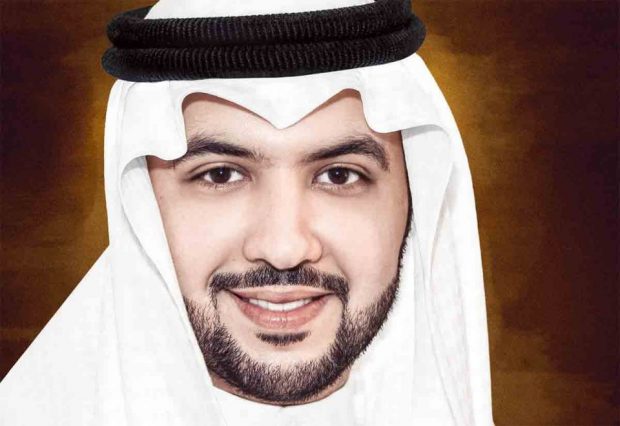
Sheikh Mubarak (Arabian Business)
By Shane McGinley
Arabian Business
Kuwait: Waiting in one of the reception rooms in The White Palace in Kuwait City, it is hard not to notice a huge painting hung on one of the room’s walls. The image is of an Arabic woman sitting at a desk writing by candlelight as she looks over at a man standing proudly holding the reins of an impressive horse.
When Sheikh Mubarak Al Abdullah Al Mubarak Al Sabah enters the room I ask him, is there a story behind the epic piece of artwork?
He informs me it is a portrait of his parents. His father was a senior officer in the military and his mother was a well-respected writer who earned a doctorate in Economics from Cambridge University.
On the plane over for the interview, I wondered what it must be like to be born a prince, into such immediate wealth, attention and responsibility, with all the heritage, tradition and expectation that comes with it.
“We have hotels in five of the GCC countries.
We are looking to build two new hotels in Saudi Arabia”
When did Sheikh Mubarak first realise he had been born into Kuwait’s royal family and his life was going to be quite different? “I have been brought up in this way,” he says, looking initially confused by the question. “My father had a long history in Kuwait,” he adds before thinking more closely about the question.
“There has always been a burden on one’s back,” he says, adding that his motto, and that of his father before him, was that ‘you serve to lead’.
“There is a sense of duty, be it in the family, as an officer or a gentleman,” he says. “That is very important, to have it as part of a family and an intricate part of one’s life.”
The Kuwaiti sheikh’s early academic career saw him undertake training at the Royal Military Academy at Sandhurst, a popular breeding ground for Arab and European royalty.
Following a stint in the Kuwait Armed Forces, he earned an undergraduate degree in Politics with Economics from the University of Buckingham and a Master’s Degree in International Relations from Cambridge University.
His time spent in the United Kingdom served him well as it was there that he noticed the proliferation of budget and midscale hotels. When he returned to the Middle East he set out to replicate this trend and is widely acknowledged as one of the first hoteliers to introduce this new hospitality offering to the region more than a decade ago.
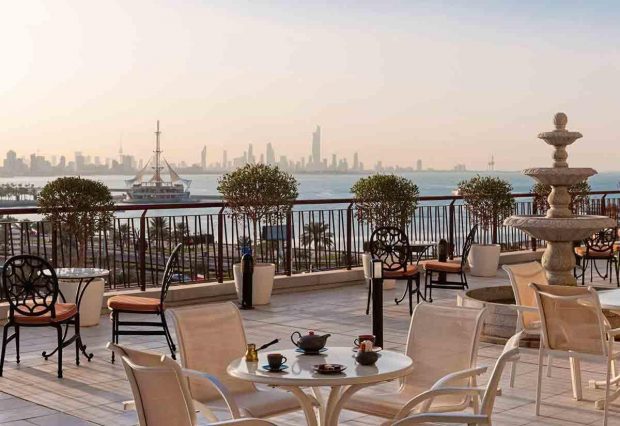
Action Hotels is known for its pioneering development of the region’s midscale hotel section (Arabian Business)
During our chat, which is the second time I have met him in a little less than a decade, the sheikh is suffering with a bad flu and sipping on a hot drink – and apologising repeatedly that he is not really up to being interviewed but will push on anyway – but there are a number of obvious traits about the founder and chairman of Action Hotels Company (AHC), one of the region’s most successful and popular home-grown hotel groups. He is always soft spoken and modest in his assessment of his successes, but he is always extremely direct and straight talking, never one to sugar-coat the truth or shy away from giving an honest assessment of the market or economic conditions. And our latest cover interview with him is no different.
Soft year
“2018 was generally a soft year for the hotel industry,” he says when I ask him for an assessment of how the past year has gone. “We have hotels in five of the GCC countries. We are looking to build two new hotels in Saudi Arabia,” he adds.
“We are stable now, we are not developing very much… We’re trying to enhance the operations,” he says, before taking aim at his first target for assessment: the hotel operators. “The problem that we have today is with operators… They’re becoming too big.”
He cites Marriott’s acquisition of Starwood for $13.6bn in 2016 as an example, with the merger creating the world’s largest hotel company with over 5,700 properties and 1.1 million rooms, representing 30 leading brands from the moderate-tier to luxury in over 110 countries.
Sheikh Mubarak believes such epic deals are bad for hotel developers.
I think Kuwait is still a conservative society.
We are liberal in ways but we respect our traditions
“Basically, if you’re an owner today, you’re worried because they have so many rooms to fill, are they [the operators] going to service you as an owner properly? They become like ‘the Walmart of brands’. They don’t want to manage anymore, they want to franchise or they want to focus on the big ticket five-star luxury brands where they make the most fees,” he says.
“They’re becoming only operators of brands and making fees… that is worrying for an owner. Do they have enough personnel to manage this? That’s our problem… Do they have enough general managers to run the hotels? Today operators need to focus on people, not on brands. They are buying brands and not following the people and this is the biggest problem we have,” he believes.
According to its website, Action Hotels has 13 hotels across the Middle East and Australia and two in the pipeline. Its current operator partners are Accor Hotels, InterContinental Hotels Group and Louvre Hotels Group.
Dropping operators
With the proliferation of more and more brands, the sheikh says he has never shied away from renegotiating contracts with operators if they are not delivering, or even switching to another one if the revenues are not up to scratch.
“We have done that, yes of course,” he says, almost surprised by the question. “I cannot discuss the details. We have done that in the past, yes. If you don’t perform, subject to the contract between us, yes you can change them.”
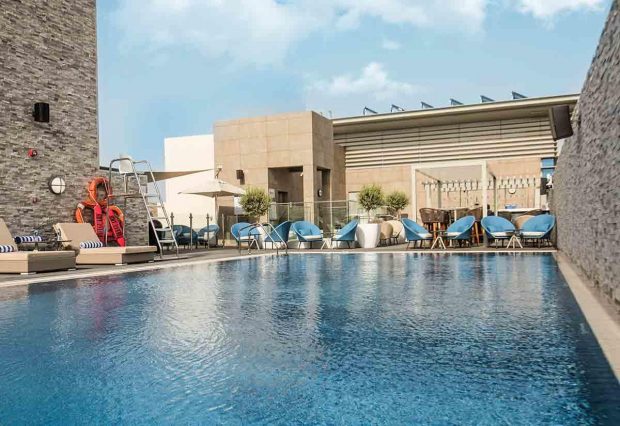
So how much leeway do hotel owners have to scrap an operator if they are not happy with them?
“It depends on the contractual agreement between the two parties,” he says.
“But usually if they underperform contractually, we will remove them. You have a right to remove them and this happens.”
While Sheikh Mubarak is considered one of the main pioneers in the midmarket hotel sector in the region, he does acknowledge that what is considered midmarket in the Gulf is often not the same as that internationally.
“We enhance a lot of these brands. The Courtyard Marriott brand in the US is not like the Courtyard Marriott brand in Kuwait, for example. The ibis Red is not like the ibis Red in Europe, it is much higher [standard] here than it is in Europe.”
For example, he points out that mid-market hotels overseas often don’t have minibars, but in this climate having fridges in rooms is a necessity, especially if people take medication that needs to be chilled. Although, he smiles and then laughs that “fridges don’t make money”.
One area his mid-market hotels don’t bend the rules on is room service, which he says would be a costly step too far. “We don’t have room service, because, if you think about it, if everyone is to have room service in their room you need 10 people to cater to that.”
Online oligopoly
The surge in the development of technology and online digitalisation has also changed the environment, and not necessarily for the betterment.
I am very keen to expand into Europe, especially the UK and Germany –
the two main markets for midscale hotels
“People like Booking.com take like 20 percent,” he says. “Owners are losing out and operators are losing out. This is why a lot of them are building loyalty programmes,” he argues, but acknowledges that you can’t ignore the big online booking agents as there is little alternative in the current economic climate.
“No, you have to [use them]. You have no choice. They have an oligopoly for sure,” he adds.
So, going forward, the sheikh is not afraid to admit that the group had to make some changes in the last year and his priorities have changed.
“Our goal was to build a certain number of rooms. This plan changed because of the economic situation in the region and also the geopolitical concerns. We’ve had some headwinds, of course, which affected our business.
“Now we are restructuring the business to focus on operations and moving towards franchise, as opposed to management contracts. We are trying to enhance and see how we can add value to delivering better results in the short-term. In the mid-term we would be looking to selectively develop in the region, not drastically as we have shelved a few projects,” he adds.
Two major events have occurred to change the business. Firstly, the hospitality company listed on the London Stock Exchange’s (LSE) Alternative Investment Market in 2013, but late last year the parent company, Action Group, decided to delist and it is now 100 percent private again.
The hotelier also has a new senior executive, with Christophe Landais unveiled as CEO in June this year. Landais is a former managing director and chief operating officer of Accor in the Middle East, brings more than 30 years’ experience in executive hospitality management. He will direct the group’s strategy to bring the company’s portfolio to a total of 2,256 rooms in the not to distant future.
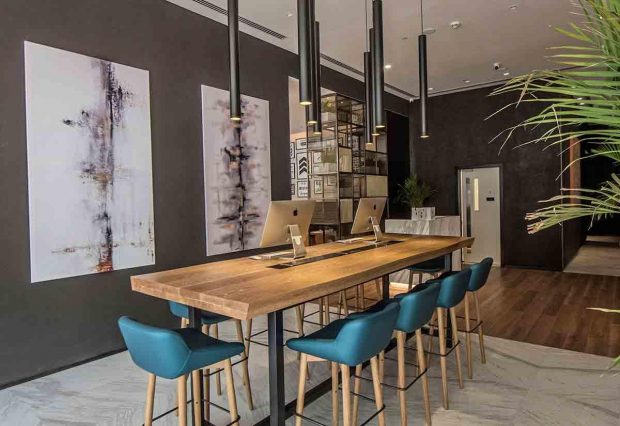
The newly opened Novotel Bur Dubai is ideally located in Healthcare City (Arabian Business)
The sheikh describes Landais as “a perfect fit” for the role. “Christophe has spent many years in the hospitality sector holding executive positions, including at Accor in the region. This gives him a deep understanding of AHC’s philosophy, anchored in satisfying the underserved growing demand for economy and midscale hotels,” he says.
Regional outlook
But the hospitality outlook for the region is mixed, the chairman admits. Kuwait and Bahrain, he says, have seen a bit of a drop as the emergence of Saudi Arabia and the development of the kingdom’s domestic tourism market has seen a fall in the number of Saudis going abroad.
However, large-scale development plans, such as airport infrastructure upgrades in both countries, will should spur a resurgence in tourists to both markets, he says.
But there is one market he is concerned about. “The UAE, I am a bit worried, even with the Expo coming, they have a big supply problem. Occupancy is generally high but rates and RevPAR [revenue per available room] has dropped considerably,” he says.
Sheikh Mubarak has every justification to be worried. The latest data from research company Valustrat found that the number of hotel rooms in Dubai is set to increase from 93,734 in May this year to close to 130,000 by the end of the year if all projections and launches announced are delivered, an increase of nearly 40 percent.
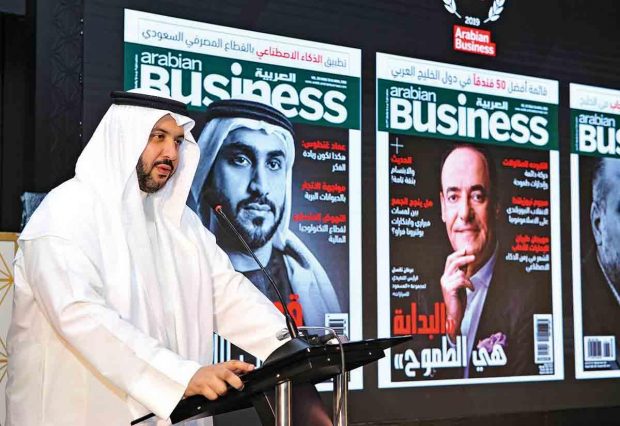
Sheikh Mubarak won the Businessman of the Year honours at the Arabian Business Awards in Kuwait in April (Arabian Business)
At the same time, the number of international guests has remained stable at just over 7 million, average occupancy rates have dropped 5 percent to 77 percent and RevPAR has dropped 15.6 percent year-on-year.
Despite that, the Valustrat report says the opening of the 17,000-seater Coca Cola Arena is likely to spur more local and regional events, which will have a positive impact.
The sheikh is confident that Expo 2020 Dubai will have a positive impact and not just with the projected 11 million overseas visitors but the teams coming to manage preparations for the event.
“I think Expo 2020 is a good thing as you will have one year of clientele coming around versus something where you only have one or two weeks. Before you will have people coming for preparations, each pavilion will have hundreds of people doing it,” he says.
Entertainment City
Looking at his home market, when I interviewed the sheikh nearly a decade ago he was of the opinion that the Kuwait government needed to do more to promote the country and develop attractions to bring in international visitors.
“We are a very liberal country and no different from any other GCC state, but we are not promoted. The lack of infrastructure… is not there to attract tourists to be a hub,” he said at the time.
Looking at the market now, he is pleased that this is starting to take place, citing two major recent advances. The first is the Sheikh Jaber Al Ahmed Cultural Centre, which opened two years ago and has hosted an array of international musical guests, including the British Philharmonic Orchestra.
This summer the government also announced plans for Entertainment City, which will include a variety of attractions for local and regional visitors.
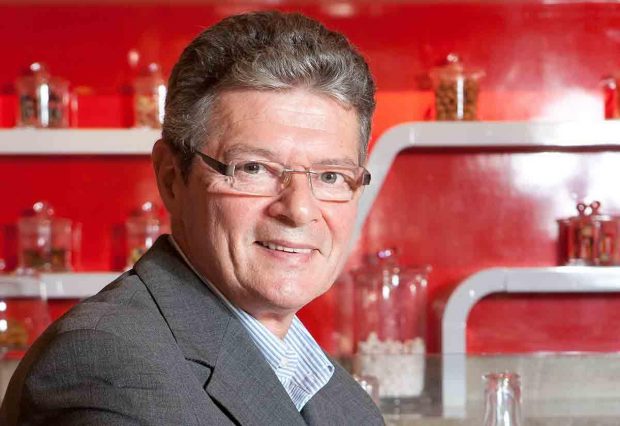
CEO Christophe Landais will spearhead Action Hotels’ expansion plans
(Arabian Business)
But the sheikh admits that Kuwait is not trying to compete with Dubai or Saudi Arabia on the international entertainment scene and is keen to offer something a bit different.
“I think Kuwait is still a conservative society. We are liberal in ways but we respect our traditions. It gives us a distinct combination. Not everyone wants to go to Dubai. [Kuwait] is a micro economy in some ways, it is not on a global scale,” he says.
Aussie rules
Looking to the future, while the Gulf market is challenging, opportunities in Australia, which the company entered a few years ago, is doing well.
There had been rumours that the company would follow its listing in London with a listing on the Australian Stock Exchange. While the sheikh says this is unlikely, he does admit that there will be some news coming soon about his operations in the southern hemisphere.
“We are looking at something in Australia, not listing, but we are looking at doing something. We are looking at partners to create some sort of a vehicle. Maybe combining our assets with other assets into some kind of a vehicle. We are open to discussions,” he says.
So will an announcement be coming this year? “I can’t say anything yet,” he says, becoming uncharacteristically coy.
But international markets are certainly on his radar, especially Europe. “The UK is an interesting market… I would like to look at that market more but we don’t have any good local knowledge there. I would like to enter the midscale market in Europe now in a big way,” he says.
“Germany is a stable economy. The culture of midscale is very big there, the Germans like value for money. I am very keen to expand into Europe, especially the UK and Germany – the two main markets for midscale hotels.”
As we wrap up the interview, I let the sheikh retire with his hot drink but I am sure we will be hearing a lot more from him in the coming months, especially when it comes to his international aspirations.
ARABIAN BUSINESS























































